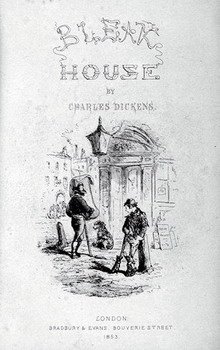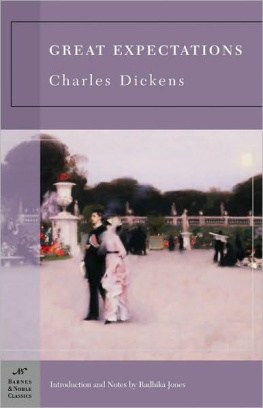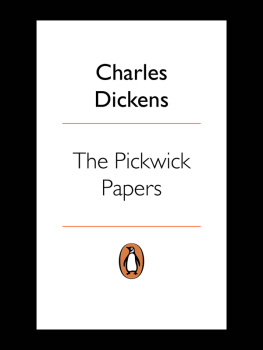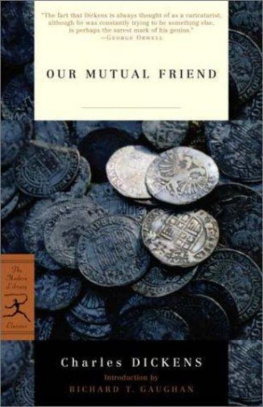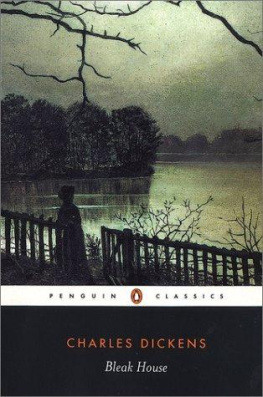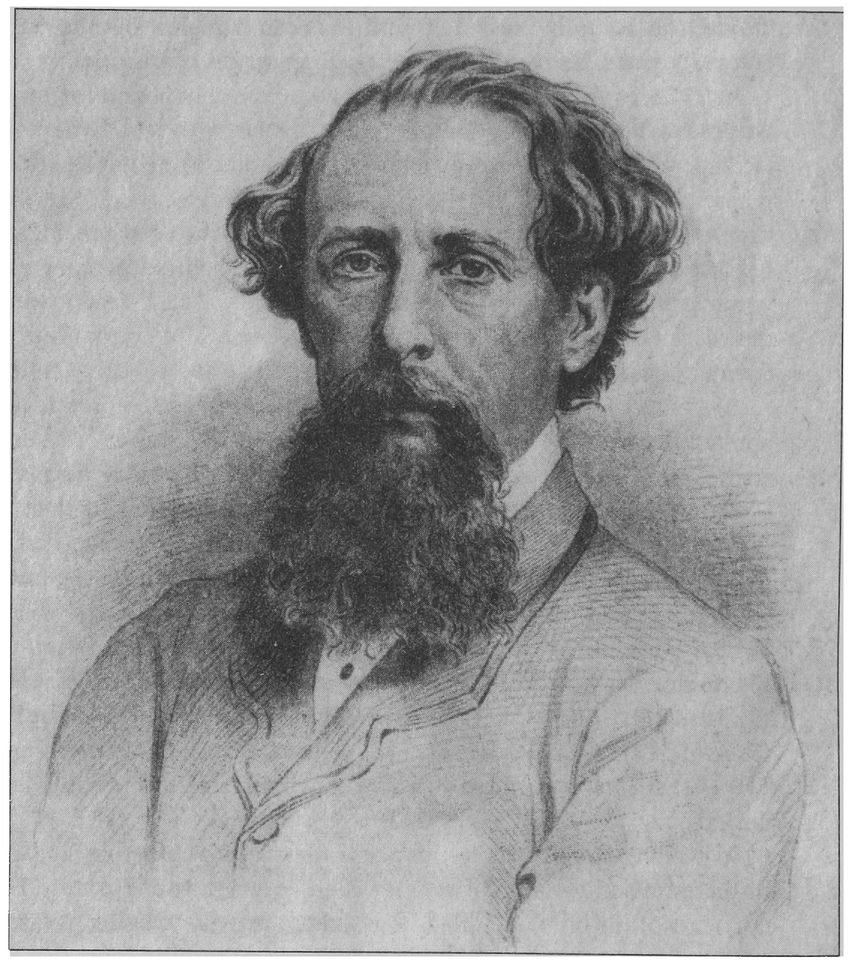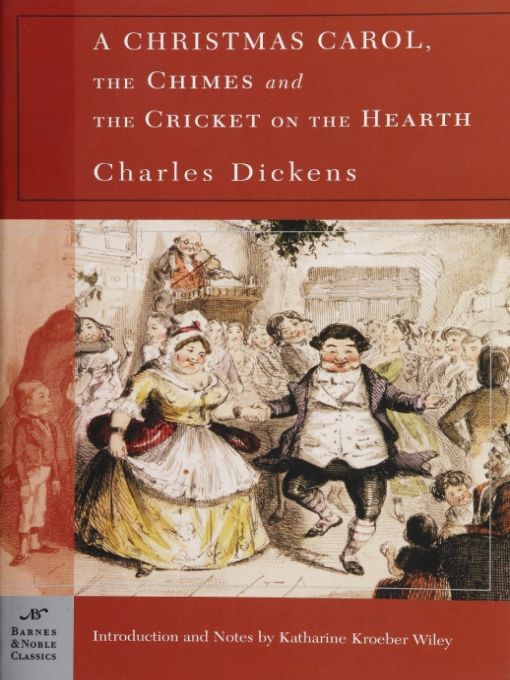
Table of Contents
FROM THE PAGES OF A CHRISTMAS CAROL, THE CHIMES AND THE CRICKET ON THE HEARTH
Oh! But he was a tight-fisted hand at the grindstone, Scrooge! a squeezing, wrenching, grasping, scraping, clutching, covetous, old sinner! Hard and sharp as flint, from which no steel had ever struck out generous fire; secret, and self-contained, and solitary as an oyster. The cold within him froze his old features, nipped his pointed nose, shrivelled his cheek, stiffened his gait; made his eyes red, his thin lips blue; and spoke out shrewdly in his grating voice. A frosty rime was on his head, and on his eyebrows, and his wiry chin. He carried his own low temperature always about with him; he iced his office in the dog-days; and didnt thaw it one degree at Christmas.
(from A Christmas Carol, page 10)
Scrooge having no better answer ready on the spur of the moment, said, Bah! again; and followed it up with Humbug!
(from A Christmas Carol, page 12)
In came little Bob, the father, with at least three foot of comforter exclusive of the fringe hanging down before him; and his threadbare clothes darned up and brushed, to look seasonable; and Tiny Tim upon his shoulder. Alas for Tiny Tim, he bore a little crutch, and had his limbs supported by an iron frame!
(from A Christmas Carol, page 53)
God bless us every one!
(from A Christmas Carol, page 55)
The Spirit stood among the graves, and pointed down to One.
(from A Christmas Carol, page 80)
I will honour Christmas in my heart, and try to keep it all the year.
(from A Christmas Carol, page 81)
I am as light as a feather, I am as happy as an angel, I am as merry as a school-boy. I am as giddy as a drunken man. A merry Christmas to everybody! A happy New Year to all the world! Hallo here! Whoop! Hallo! (from A Christmas Carol, page 82)
High up in the steeple of an old church, far above the light and murmur of the town, and far below the flying clouds that shadow it, is the wild and dreary place at night: and high up in the steeple of an old church, dwelt the Chimes I tell of.
(from The Chimes, page 93)
The New Year, like an Infant Heir to the whole world, was waited for, with welcomes, presents, and rejoicings.
(from The Chimes, page 117)
The kettle began it, full five minutes by the little waxy-faced Dutch clock in the corner, before the Cricket uttered a chirp.
(from The Cricket on the Hearth, page 182)
Every man thinks his own geese swans.
(from The Cricket on the Hearth, page 215)
Friends, one and all, my house is very lonely to-night, I have not so much as a Cricket on my Hearth. I have scared them all away. Be gracious to me; let me join this happy party!
(from The Cricket on the Hearth, page 264)
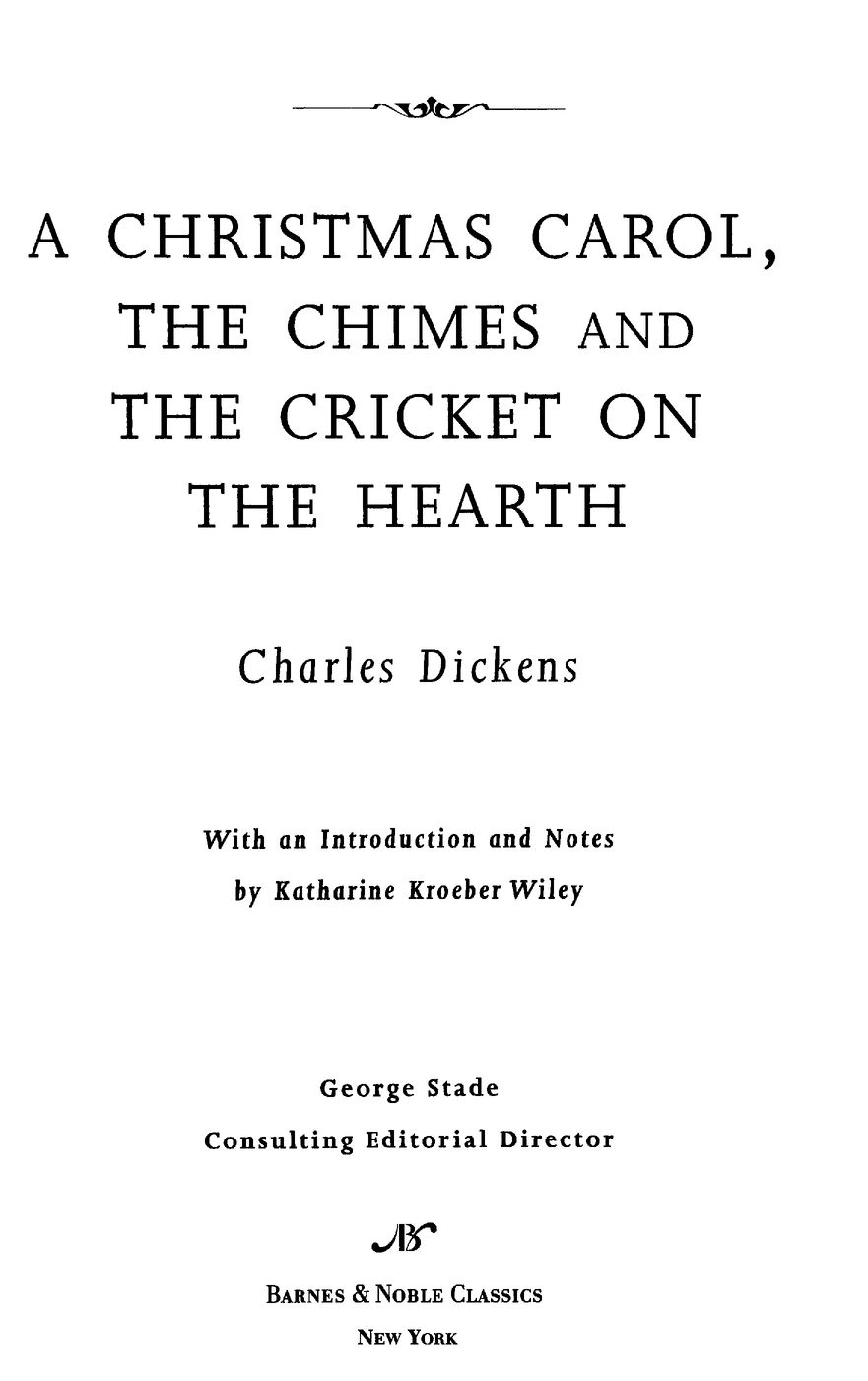
CHARLES DICKENS
Born on February 7, 1812, Charles Dickens was the second of eight children in a family burdened with financial troubles. Despite difficult early years, he became the best-selling writer of his time.
In 1824 young Charles was withdrawn from school and forced to work at a boot-blacking factory when his improvident fatherin fact, his entire family, except for himwas sent to debtors prison, where they remained for three months. Once they were released, Charles attended a private school for three years. The young man then became a solicitors clerk, mastered shorthand, and before long was employed as a Parliamentary reporter. When he was in his early twenties, Dickens began to publish stories and sketches of London life in a variety of periodicals.
It was the publication of The Pickwick Papers (1836-1837) that catapulted the twenty-five-year-old author to national renown. Dickens wrote with unequaled speed and often worked on several novels at a time, publishing them first in monthly installments and then as books. His early novels Oliver Twist (1837-1838), Nicholas Nickleby (1838-1839), The Old Curiosity Shop (1840-1841), and A Christmas Carol (1843) solidified his enormous, ongoing popularity. When Dickens was in his late thirties, his social criticism became biting, his humor dark, and his view of poverty darker still. David Copperfield (1849-1850), Bleak House (1852-1853), Hard Times (1854), A Tale of Two Cities (1859), Great Expectations (1860-1861), and Our Mutual Friend (1864-1865) are the great works of his masterful and prolific later period.
In 1858 Dickenss twenty-three-year marriage to Catherine Hogarth dissolved when he fell in love with Ellen Ternan, a young actress. The last years of his life were filled with intense activity: writing, managing amateur theatricals, and undertaking several reading tours that reinforced the publics favorable view of his work but took an enormous toll on his health. Working feverishly to the last, Dickens collapsed and died on June 9, 1870, leaving The Mystery of Edwin Drood uncompleted.
THE WORLD OF CHARLES DICKENS AND A CHRISTMAS CAROL, THE CHIMES AND THE CRICKET ON THE HEARTH
| 1811 | Jane Austen publishes Sense and Sensibility, arguably the first modern English novel. |
| 1812 | Charles John Huffam Dickens is born at Portsmouth to John and Elizabeth (ne Barrow) Dickens. The government orders a group of Luddites, an organized band of laborers opposed to the industrialized machinery that threatens to replace them, to be shot down. |
| 1817 | The Dickens family moves to Chatham, in Kent. Charles begins reading the books in his fathers library; his favorites include the works of Miguel de Cervantes, Daniel Defoe, Henry Fielding, and Tobias Smollett. |
| 1822 | The Dickens family moves again, this time to Camden, in North London. Charles quickly and fastidiously learns the landscape of London, an invaluable resource for his later writing. |
| 1824 | Charles is sent to work at Warrens Blacking Factory, a manufacturer of bootblacking. His father is arrested for debt and imprisoned for three months, and while the rest of the family stays with John Dickens in prison, Charles lodges elsewhere and continues pasting labels onto bottles of blacking at Warrens. |
| 1825 | John Dickens retires on a naval pension, and Charles attends Wellington House Academy, a private school where he wins a prize in Latin. |
| 1827 | Dickens becomes a clerk in a solicitors office. |
| 1829 | After learning shorthand, Dickens establishes himself as a reporter for the law courts, Parliament, and various London newspapers. He meets Maria Beadnell and falls in love with her. |
| 1831 | Dickens joins the journalistic staff of the Mirror of Parliament; he transcribes speeches by the members of Parliament on such topics as factory conditions, penal reform, education reform, the Poor Law Commission, and the First Reform Bill of 1832. |
| 1833 | After four arduous years, Dickenss affair with Beadnell dis solves in the face of her familys disapproval. He publishes his first story, A Dinner at Poplar Walk, in the Monthly Magazine. The British Parliament passes the Factory Act, which regulates child labor and forces children to attend school until age thirteen. |



